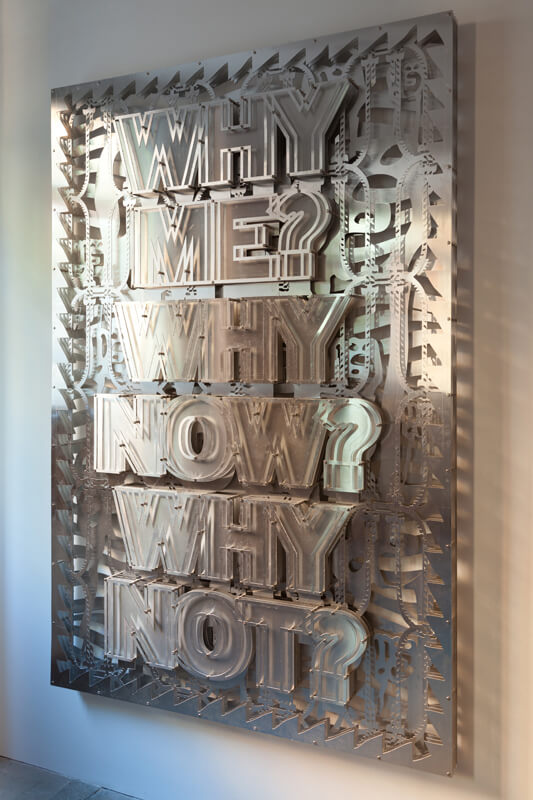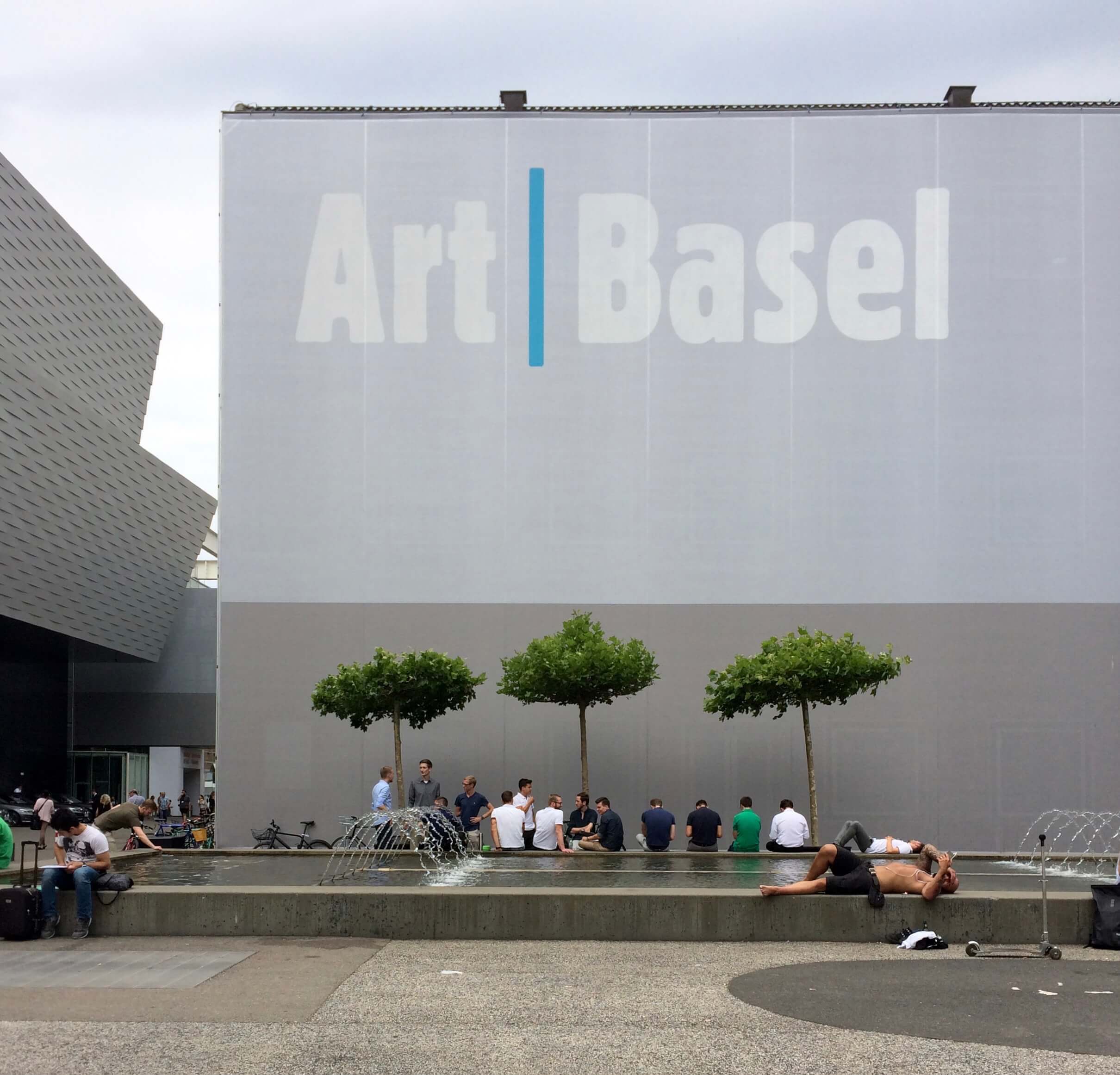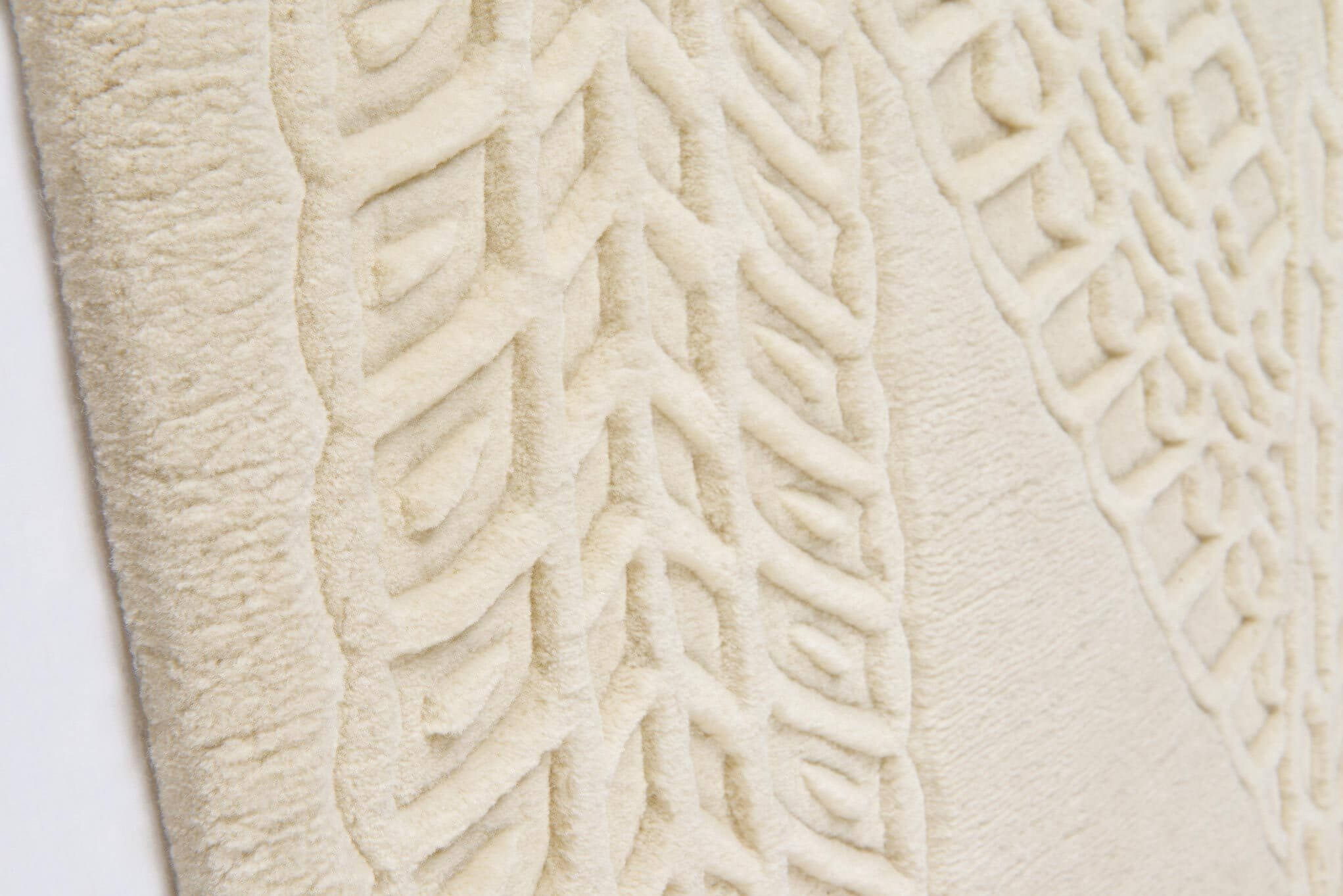I visited Penguin Random House’s corporate art collection earlier this week. Joanna Prior, Managing Director of Penguin General Books, has overseen the corporate art collection since its inception in the late 90s and it has become her personal endeavor as much as the company’s. Penguin is a case in point that, whether starting an art collection, sponsoring art events or hosting a programme of temporary exhibitions, there are numerous ways to get tangible value of an art initiative in the corporate environment without a hefty budget.
Corporate Collections are definitely not a new thing. However, it is a complex balance to find the right edge that will enhance the company’s personality and ethos alongside having a meaningful relationship with the art. If done with intent, corporate art patronage is rewarding and worthwhile for the business. UBS and Deutsche Bank are two successful models but they also bring along a heavy price tag. They are two of the highest public profile art collections in addition to their sponsorship of major art events, Art Basel and Frieze Art Fair respectively. Whilst these two and other important collections are renowned for the notorious names and the wealth hanging on their office walls, Penguin Random House’s corporate art collection stands out for their integrity and honesty despite the modesty of means. The collection consists almost exclusively of limited-edition prints by predominantly British artists and printmakers who work with text.
Whilst large organisations have in-house art advisory departments to manage the collection and the acquisition process, Prior explained how at Penguin all employees are welcome to join a committee which, guided by a consultant, suggests and decides on new acquisitions yearly. The beauty of this collection is that all art is on display and the works compete with corridors fully lined with floor-to-ceiling bookshelves; office-related post-it notes; family and team photographs and writing boards in brainstorming meeting rooms. This is a creative, lived-in and loved office. This is a project to stimulate conversations and it works. Walking through the corridors, I saw two works by Mark Titchner. A bold move from Penguin. Whilst the art on display is not set to shock or create controversy; it encourages curiosity and inquisitiveness.

Nominated for the Turner Prize in 2006, Titchner explores systems of belief. Mark Titchner (Luton, 1973) works across a wide range of media, including light boxes, digital print, wall drawing, video, installation and extraordinary hand-carved metal wall sculptures. His work interweaves references from pop lyrics, propaganda, advertising and corporate modes with religious iconography that inspires and motivate viewers to take action. The common thread in his work is a pursuit for idealism, at times infectious whilst it may also come across as a skeptical commentary depending on the context where it is placed.
Art gives businesses personality; it builds on their identity with a richer context. Companies who engage with art improve their corporate culture, enhance their brand image and add a new dimension towards their corporate social responsibility outreach. The key is to identify the company’s long term objectives so that it drives the art initiative seamlessly. Instead of giving art a decorative function, a company would be wise to maximise the benefits by taking into account all marketing, legal and financial considerations that can be turned into a business advantage.
Assert your Identity: How does your company want to project itself? Contemporary art represents a company as a dynamic, active and growing force; mindful of the world today. Open yourself to new audiences and retain existing ones with a unique message.
Inspire and Stimulate: In a firm with some of the brightest minds in the industry, exhibit artwork that holds those same high standards. This is a statement about corporate culture which benefits employees as much as clients. Host your clients and employees at private exhibitions and talks in your own offices. Make the most of your office space!
Leave a Legacy: Leverage your position as a private organisation. Decide how you want your involvement in the arts to shape future generations’ art appreciation. Invest in talent and support the potential of tomorrow.
Invest in You: Engage with art that has a reasonable chance of appreciation, away from decorative works. Faced with bare walls, particularly in areas used for business cultivation and meetings, a company would be wise to invest in promise and quality to add both beauty and a source of future capital to their workplace.
Inclusion and Exposure: Associate yourself with a philanthropic remit and integrate it within your Client Relations and PR strategy. The critical fulfilment of this initiative is to engage with an ethos of cultural outreach that supports your company’s objectives.
IñigoArt Advisory is launching a new way to engage with contemporary art for the corporate sector: A programme of exhibitions in the office environment, tailored to your company’s ethos and identity, curated with the unique qualities and aspirations of the business in mind. The exhibition programme aims to be an entry point to corporate art collecting and patronage. This is an opportunity to lead an initiative that encompasses your company’s objectives alongside a wider social impact. If you are interested in corporate art patronage for your company, please get in touch.
**Please note the art works above are not part of Penguin’s corporate collection. They are intended to showcase the artist’s practice.




